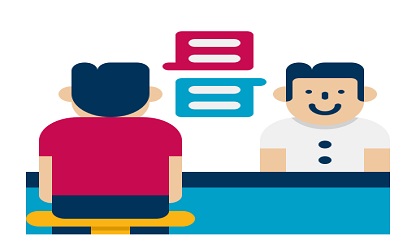 Counselling in schools; the ever-increasing need
Counselling in schools; the ever-increasing needThe need for counselling in schools has been a matter of serious discussion on several platforms. Boards of education and affiliating agencies had been emphasizing the role and relevance of counsellors in schools. A large spectrum of student-centric, parent-centric and teacher-centric activities could be improved with the assistance of counsellors. In the post-pandemic scenario, the remedial and interventional activities to be undertaken by the schools to re-engineer the school dynamics and rehabilitate the school ecosystem is felt at all levels. However, there appears to be a huge gap between the need and the action to be taken at the institutional levels.
As one who has worked with the school system for several decades and has brought to light the importance of counselling, I think a few myths do exist in the understanding of the role of counselling among the administrators. Here are a few issues to reflect:

1. Counselling is not nursing but it is nurturing.
Oftentimes, school heads, teachers and parents believe that counselling is needed only when there is a serious problem. They imagine a clinical approach to the issue and consider counselling more like a nursing process to one who needs attention. This idea is quite myopic. In many cases, diagnosis of a problem in context, and in the given time, framework and space helps to remove the possible impediments both to learning and behaviour through nurturing. A conversation, a dialogue, an understanding, an appreciation, an acknowledgement and a pat may be good enough to reposition the entire process in a short time. The learner would possibly need only a recognition of the identity and nurturing of the identity. As such many learners in schools need this support.
2. Counselling is not essentially an intervention; it may be a door to inspiration.
Many parents and educators believe that counselling is an interventional process and is needed only when there is a need for an external agency. They tend to deal with such cases like a self-medication process of a sick person without any professional prescription. I think this idea needs to change. Counselling is not essentially an interventional process. It could be a simple exercise to open the energy levels, performance patterns, creative faculties latent in the person. It could not have manifested due to several oppressive conditions and situations which make the learner depressed. Words and actions of the counsellor might open gateways to inspiration. This might help the learner towards self-learning, self-directed learning and self-actualization.
3. Counselling is not mere handholding; but it is collective path breaking
There is a general misgiving that counselling is a process of handholding the learner to a defined goal and thus the ecosystem starts dealing with the learner more like a challenged learner. Sometimes people start showing sympathy and pity for no valid reasons. The situation could be a state of simple confusion in the mind of the learner or his ignorance of the existing possibilities or may be born out of some social challenges. All that the individual might need is one who would stand in support to explore a possibility, a new path and get a new hope. This is usually done jointly by the counsellor and the learner with mutual understanding and with enhanced confidence in each other’s profile. With many emotional and career challenges, many learners would need this help. As such this process could extend both to the parents and the teachers as a joint venture to facilitate the learner to explore new paths with a sense of enterprise.
4. Counselling is not a mere subjective correction; but it is a collaborative action to take the subject to an objective
In an environment where pattern forming is dominant to stay put in the race or to show relative aggression over others for irrelevant reasons, the path followed by the learner may need to be re-oriented or its direction changed. Timely actions might help the learners to avoid unwarranted challenges that trigger stress, aggression, violence and self-defeat. It is important to ensure that the learner is not engaged in unhealthy competition with others where one’s aptitude or interest is not found. The experience and the understanding of counsellors who work in tandem with parents and teachers might help in positioning the career profile of the learner on track. This would not help one to learn with joy and passion but might trigger better creative indulgence and a sense of enterprise.
5. Counselling is not curative or remedial; but it is constructive and reinforcing
Oftentimes, parents and educational institutions believe that counselling is waving of a magic wand and hence expect overnight results. Unfortunately, it is not so. It is not just a remedial action. It is a collaborative action of all the stakeholders in the system over a period to help the learner conserve one’s energy, radiate a positive influence on one’s environment with joy. Counselling, therefore, is both constructive and reinforcing. The results of such reinforcements are reflected over a period of time through the learnability and behavioral patterns of the individual. Thus, counselling often acts as a long time learning experience enabling and empowering the learner to take decisions at the personal level for growth.
It is time schools understood and engaged with this essential requirement in their school ecosystem. Schools need to educate the parents and the teachers on the holistic and encompassing impact of counselling.